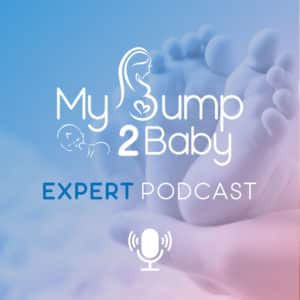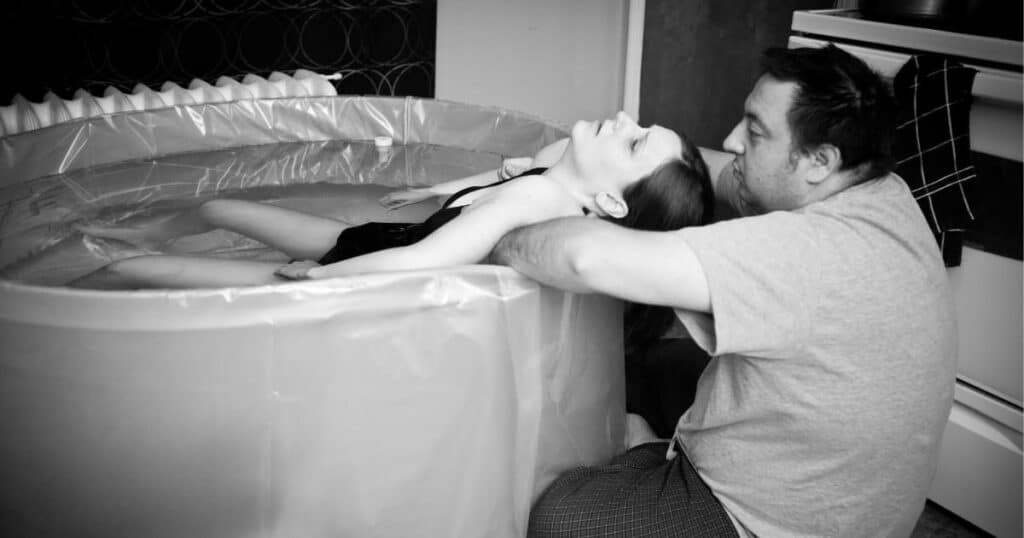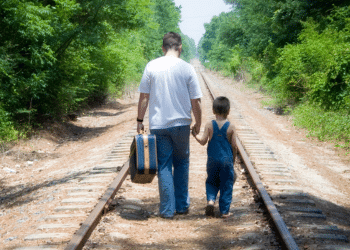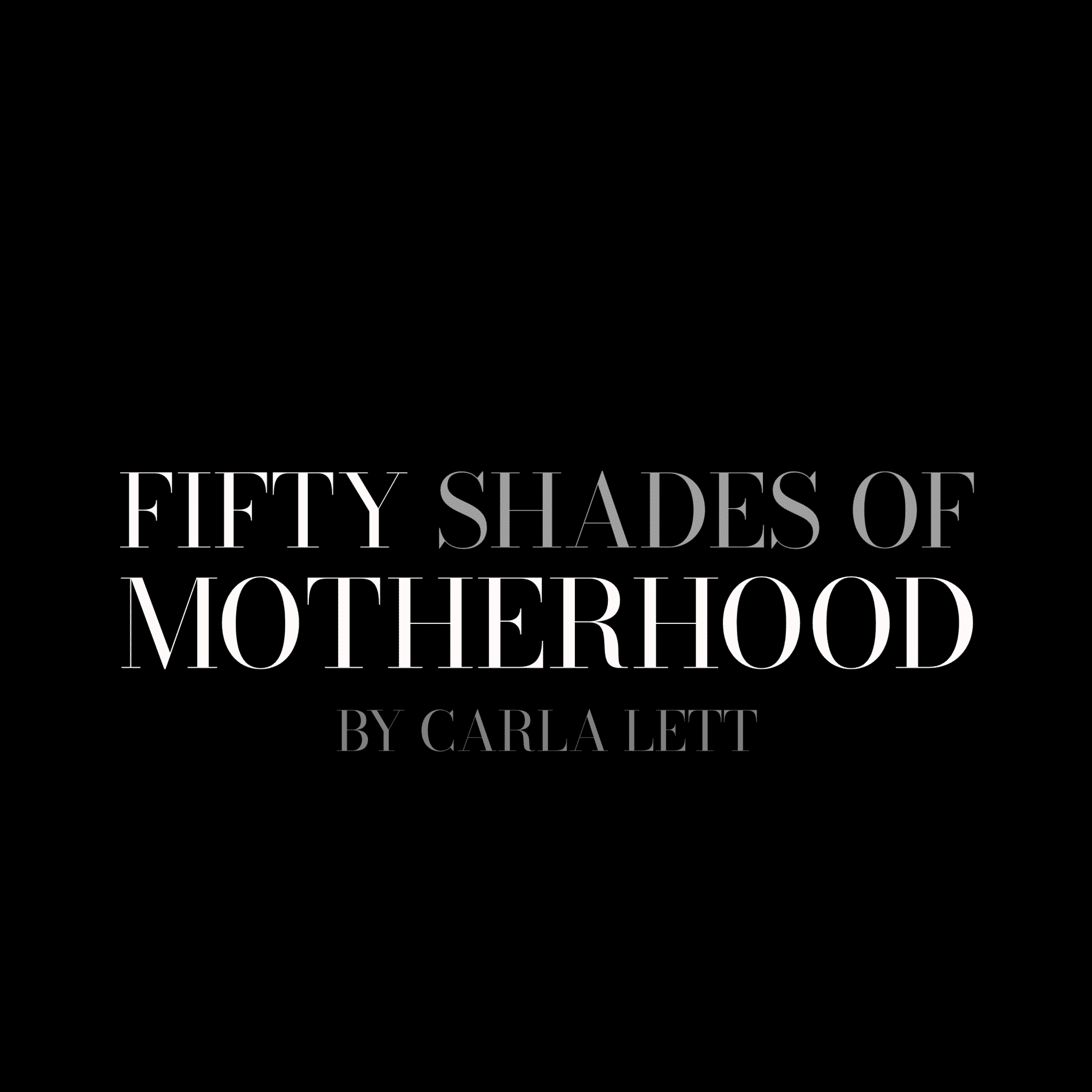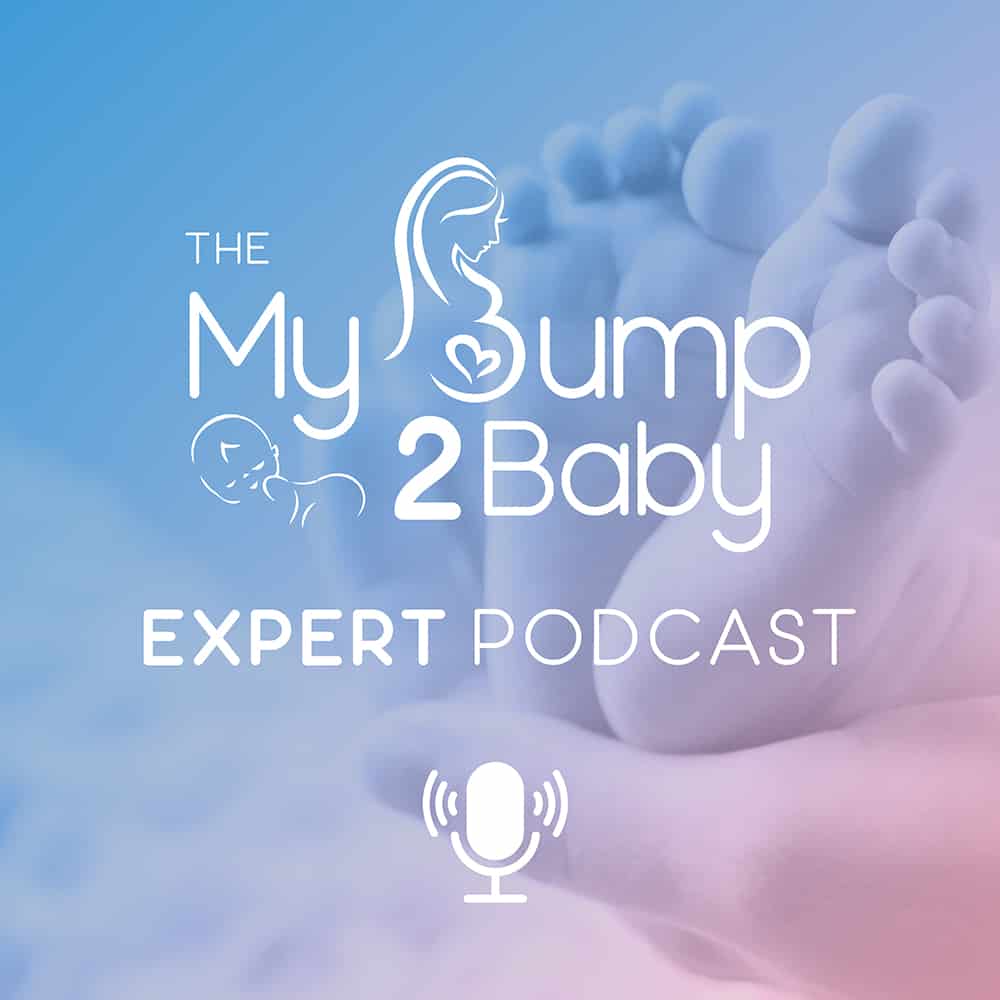- Home Births
from Power in Birth in Leeds. In this expert episode we answer all your questions on home births. We discuss advantages of home births, statistics of home births vs hospital births, we discuss the different options for home births and ways you can include your family in the experience. We also share useful courses and groups you could benefit from.
Connect with Magdalena Finn via her website
https://www.powerinbirth.co.uk/
Courses https://www.powerinbirth.co.uk/shop
https://www.instagram.com/power.in.birth/
https://www.facebook.com/powerinbirthUK
[00:00:00] Carla: We are Google’s number one, baby and toddler directory. We cover everything from pregnancy to preschool, and we are home to over 8,000 business listings. Join over 160,000 parents using our website each month, and you can find your local groups, classes, services, and support in your local area.
[00:00:37] Carla: Hello and welcome to My Bump 2 Baby Expert podcast, where we bring experts from all over the Uk, to answer your questions on everything pregnancy to preschool. Today we are talking all about home births, and today we welcome on Magdalena Finn from Power in Birth.
[00:01:04] Carla: Hello everybody and welcome to My Bump 2 Baby’s expert podcast. Today I am joined by Magdalena Finn and she is our antenatal expert in Leeds, and she has a fabulous company called Power in Birth. So, hello, how are you?
[00:01:24] Magdalena: Hello? Hi, Carla. Hi, everyone. Well, I’m fabulous because I’m going to spend an hour talking about birth.
[00:01:31] Magdalena: So Yes, I’m in my element.
[00:01:34] Carla: Oh, no, I know. Well, that’s it. I mean, when we first spoke, I mean, it’s clear to see how passionate you are about the birth side of things and you know, especially with My Bump 2 Baby, we get so many people that are a bit nervous about giving birth and it’s so nice and reassuring to speak to you cuz you’ve got so many words of wisdom.
[00:01:52] Carla: So I’m looking forward to having a chat with you about this. And do you wanna tell us a little bit about you initially anyway? So people know who you are and, and what you do.
[00:02:04] Magdalena: Hi, I am Magdalena. I’m the founder of Power in Birth. I am simply obsessed about physiological, beautiful, gentle birth, and that’s what I do.
[00:02:15] Magdalena: I prepare women and parents families for a birth they want and deserve on their own terms, however they want to birth, you know, whether it’s home or birth centre or hospital. Um, I. You know, it’s, it’s very individual for everyone. But most of my, um, clients now friends, um, uh, choose home or uh, or birth centre birth.
[00:02:46] Magdalena: Um, so that’s what I do. And I also look after parents postnatally. As long as they need it because, um, I love it. And it’s all about supporting mums and parents to have the best experience they, they want and deserve.
[00:03:03] Carla: That’s brilliant. No, that, that’s really good. So, so I actually had two c-sections, uh, due to complications, but I know a few of my friends that have had c-sections previously, it, they, they, they were quite interested in a home birth and they wanted to find out a load of different questions and I think loads of people have questions around it.
[00:03:23] Carla: And sometimes it can be a bit of, bit of a nerve-wracking thing to ask when you’re at the hospital because, You just wanna know really the pros and cons of both so you can make an informed decision, don’t you really?
[00:03:35] Magdalena: And it’s exactly this, Carla. You know, it’s about making an informed decision to make an informed decision.
[00:03:42] Magdalena: You need to have the information, you need to have all the pros and cons and. Make, you know, informed choice for yourself. And it’ll be different than my choice. And your choice because you are an individual and your situation and your pregnancy and your circumstances will be different. So you’ll be deciding about what’s right for you and for your baby.
[00:04:05] Magdalena: And there’s no one size fits all.
[00:04:08] Carla: No, that’s it. That’s great. So, so I’m gonna get kickstart, well kickstart with a few questions around water births, if that’s okay. So what are the actual advantages of having a home birth compared to hospital birth?
[00:04:23] Magdalena: Well, how long have you got?
[00:04:28] Magdalena: Um, first of all, you know, when we think about, um, home birth, People tend to think the first thing is like, is it safe? Is it, you know, I’d love to because it sounds so lovely, but, and we’ll get to the safety element and you’ll be surprised to hear that home birth is three times to six times more safe than hospital birth, uh, when you’re planning home birth.
[00:04:55] Magdalena: So, and there are numerous. You know, modern studies from 2020, uh, 2023 from 20 19, 20 20, and so on. So not like, you know, studies from the 1980s. There are numerous studies that show that safety time and time again. But before I get to that, will just have a, have a think about comfort. First of all, when you’re at home, you know you are surrounded by the things you love.
[00:05:24] Magdalena: It’s the place where you say, And when you feel best, you know, it’s, it’s your safe place. It’s your comfort, it’s your, you know, zone to retreat from the world. And if you contrast it with, uh, hospital environment, you know, unfamiliar, bright lights, beeping machine, you know, stress because who doesn’t have stress when entering a hospital environment?
[00:05:54] Magdalena: I think we all associate hospital with, well, you know, some sort of, some sort of, um, trauma. Mm-hmm. Yeah. No one, yeah, definitely one is, is ever in hospital for, you know, well, rarely for prevention of things, we, we end up there because usually we need something fixing. But the thing with birth and pregnancy is, you know, I, I rate hospital highly for.
[00:06:23] Magdalena: For things like, you know, stroke or broken leg or whatever the pathology is and you need help with, they’re great at that. Pregnancy and birth are not pathology. They are normal physiology. Yeah. Mm-hmm. Um, and normal physiology likes safety, comfort, and when it comes to supporting it, so I suppose, It’s, it’s, it’s that comfort, you know, that birthing your baby at home.
[00:06:57] Magdalena: Um, where in the UK you normally get two midwives attending home births. So you’re not abandoned by, you know, you always experience stuff if you choose to have them. Many people choose to do it alone. Wow. Wow. I know many free birthers who had. Beautiful, successful, safe experience because they were super, super well prepared, informed.
[00:07:26] Magdalena: Um, it’s happening in the uk, you know, and in other countries. Um, but I, I suppose most of people will want, uh, we want someone that to support, especially first time moms, perhaps. Yeah. Mm-hmm. So, you know, in, in hospitals, um, At the moment in the UK there is shortage of 2000 midwives. You know, 2000 midwives is a large number.
[00:07:53] Magdalena: Mm-hmm. So one midwife in a hospital might, you know, might need to look after several women and support several women in birth. When, when you birthing at home, You get two midwives in those trusts that support home birth, all trusts, all NHS trust should support home birth. Not all do unfortunately, but. If you do decide to get, uh, home birth and you want to birth within the NHS, you know, with the support of NHS midwives, you get two midwives just for you, you know, not, um, supporting numerous women.
[00:08:34] Magdalena: Um, and, and I know on paper, you know, when you look at trust, um, infographics, every trust has got infographics that they release every month. And it always says one-to-one care a hundred percent. But doesn’t paper, you know, We all know from experience and from the actual midwives who informally tell us in, in birth workers forums, um, you know, that is not the case.
[00:09:01] Magdalena: Um, so it’s, it’s actually fabulous because you get the support, you know, just for you or you may want to choose, you know, um, independent midwife and a doula perhaps. Um, and they work for you, not for NHS. And that’s also an option, you know, if you can afford it, go for it. Anyway.
[00:09:22] Carla: No. No, no. It is really interesting. I mean, I, I love listening to you talk about it cuz there’s so much passion there. Um, so, so we did, you mentioned it was safer than a hospital birth. Mm-hmm. What are the risks then of a home birth and how are they managed?
[00:09:43] Magdalena: Well before we get to that, yes. No, don’t worry. Lemme just get back to the first point. You know, why is it safer first?
[00:09:55] Magdalena: So the actual advantages of of home birth, well, first of all, you safety and comfort of your home. You cannot replicate that anywhere else. You, you cannot replicate this in, in any other setting because this is, you know, the space where your body relaxes and what better space to relax and, you know, ride your contractions or waves or however you want to call them, than the safety, for example, of your bedroom or your home, you know, or your bathroom.
[00:10:28] Magdalena: It’s, it’s something on a nervous system level you cannot replicate anywhere else. Yeah, because your instinct, your instinct knows where you feel safe and you cannot trick, trick it into thinking you’re safe. Feeling safe and thinking you’re safe are two different things, like feeling safe in your body. I mean, we do feel it in our bedroom, in our bathroom, right, where we have privacy, where we have darkness, where we are unobserved.
[00:11:00] Magdalena: Yeah, these are exact conditions your body needs for releasing oxytocin in abundance and oxytocin, natural oxytocin you produce in your brain, in your instinctive, primal brain is only released when you feel safe and unobserved and when you’re in darkness. So here we go again. You know, do you feel safe and unobserved?
[00:11:23] Magdalena: And if you’re, and then in dark environment when you’re in hospital, well, probably not. Because home offers you those conditions. You produce oxytocin in abundance, and then your, your birth, your labor progresses naturally and easily because your body is doing what’s supposed to do. As soon as we enter hospital, what, what do we get?
[00:11:50] Magdalena: You know, bright lights, loud voices, beeping machines. This is not conducive to, to, to a good birth experience on, on a nervous system level. And, you know, on the basic level of, you know, the fact that you need that oxytocin. And it’s not the same as oxytocin that hospitals sometimes administer. Hospitals administer artificial oxytocin to speed up labor, but artificial oxytocin doesn’t have the same properties as the natural oxytocin as the hormone you produce in your body.
[00:12:27] Magdalena: That is released by your brain. When you feel safe, it goes to your bloodstream, from your bloodstream, it goes to your uterus and fuels those contractions that bring your baby to you. So th this is, uh, extremely complex and extremely subtle process, and it’s got simply a better chance when you’re at home feeling cozy and safe.
[00:12:52] Magdalena: Yes, I’m always cozy at home. I know exactly what you mean. No, that’s, that’s interesting. So at what point then would someone tell, um, their midwife, you know, that they want this home birth? Would they tell them early on or have you got a chance to change your mind later on?
[00:13:09] Magdalena: You can always change your mind because you know, it’s your body.
[00:13:12] Magdalena: You decide what hap what happens in your body in birth or otherwise. Um, I would advise. This is just a piece of advice and you can take it or leave it to always book home birth, um, as soon as possible. And you know, if you change your mind and if your instinct is telling you, um, something’s not right, I need to be in hospital, that’s absolutely fine.
[00:13:36] Magdalena: That instinct is there for you to listen to it. Listen to it. Only you know, only you know what’s happening in your body. No machine, you know. No C T G. Can tell you exactly what you feel. Um, so I’m not knocking, you know, going to hospital. But, um, if you book your home births with a midwife, as soon as you have your appointments early on, You can always abandon that thought if you want to and walk into any hospital and any hospital will admit you.
[00:14:08] Magdalena: You don’t have to book your hospital birth, but if you want a hospital birth and you decide at the last minute, it might be very difficult or impossible to arrange it within the NHS, of course. Mm-hmm. Um, So with NHS midwives, cause you can always arrange it with someone independent, a midwife or doula if you want to.
[00:14:31] Magdalena: But if you do want to arrange it with within the NHS, you need to let them know beforehand because they do home risk assessment, which is more for them than for you. Um, and the option is always there. You know, if you book your home birth early, it’s there and it’s. Secured.
[00:14:50] Carla: Yeah, I know what you mean.
[00:14:52] Carla: Because there will be supplies in equipment won’t there? That, that’s needed for the home birth. So what, what are those?
[00:14:59] Magdalena: Well, you know, if, if birth is well supported and you know, you feel truly safe and, and I will be repeating that unobserved. And you’ve got dark environment. Why dark environment? Because, uh, your natural oxytocin gets released more in darkness.
[00:15:18] Magdalena: And it’s the mammalian thing. So think how mammals birth, they seek shelter, maybe darkness, because instinctually they know there are fewer predators out there, you know, to snack on their baby. They don’t want that, so they want to birth in safety, so they seek the cover of night. Most mammals, or at least you know, the feeling of safety of the head or whatever, wherever they go.
[00:15:46] Magdalena: Even the domestic cut. Um, we’ll be seeking some private place to birth and same with you. So that’s why I, I mentioned darkness a lot and I even forgot.
[00:15:58] Carla: No, that’s interesting. Yeah. Going on. Oh, no, don’t worry. So, um, in terms of equipment, uh, equip that you’d have, um, a home birth, what, what would that include and when does it get delivered?
[00:16:11] Magdalena: So, yeah, I guess where I was trying to get to, um, in a normal physiological birth, you might not need any. Oh, right. But because, you know, if you do, you know, have the good supply of natural oxytocin and you feel safe, you are much more likely to, um, manage the contractions with ease.
[00:16:35] Carla: Yeah. So it doesn’t necessarily need to be our water birth at home. You could just do
[00:16:40] Magdalena: No, no, you can just it, it’s home. You can do whatever you want. Be on the bed, be on the floor, you can swing from a chandelier.
[00:16:50] Carla: Wow. So with would, is there an option for the water birth at home too, or not?
[00:16:57] Magdalena: Sure. It’s your home, whatever. That’s fine. It’s just, I think a lot of, I mean, especially with the NHS, I mean, obviously.
[00:17:06] Magdalena: You know, they’re great and I’m, I’m not knocking that like, like you, but I feel like sometimes you feel, especially as a new mom or a first time mom, you can feel that there’s rules and you know, like, you know, that you need to follow. And we often forget that actually we do have that choice, don’t we? We do have a choice of how we want to do it.
[00:17:27] Magdalena: Um, absolutely. And uh, the first rule is it’s your body. It’s your uterus. It’s your vagina. I said it. Yeah. And uh, and you decide what is happening and to you and nobody else has got rights over it. You know, hospitals may have policies and, um, procedures and whatever their guidance for them. Nobody should ever tell you what you must or need to do.
[00:17:55] Magdalena: You decide. You decide, um, if you do decide to go for a home birth, your midwife will have supplies with her. So normally midwife will bring, uh, gas and air with her. It’s called Eternox, so like gas canisters for administering, you know, gas and air if you need it. Some midwives also carry Pethidine with them, so it’s an injection if someone chooses to have one.
[00:18:25] Magdalena: Most home births, you know, go well, they’re more comfortable. So they might feel they don’t need the, the injection, for example. But, you know, there’s always option of transfer if you, if you feel you’re, you’re, you know, you want to be in hospital and with, uh, if you have experienced staff there and they will spot any dangers.
[00:18:55] Magdalena: Long before they escalate. You know, labor is not as dramatic as the TV portrays it. You know, it’s not all a big gush of water. I mean, sometimes it is, but it’s, you know, it doesn’t mean anything bad and it, it’s longer and thinks, you know, your body tells you something is not right. Well ahead, you know, you’ve got time to react and.
[00:19:23] Magdalena: Experienced midwives will spot things very early on, and there will be time to transfer if there’s a need. Yeah. Unless you live, I don’t know, two hours, three hours, whatever, from hospital. You might want to reconsider, but there are people who, who do, who do just home birth, uh, in those circumstances even it’s, it’s very, very individual.
[00:19:48] Carla: Yeah, exactly. It’s doing what’s right for you, isn’t it? And that’s, yes, that’s it. So, so can we talk a little bit about the risks, cuz I do think it’s important to mention that as well. Yeah. And the risks of a home birth, just so we’ve got a complete kind of guide of everything, if you know what I mean.
[00:20:03] Magdalena: Yeah. So, um, because of those, um, factors I said I mentioned earlier, you know, natural oxytocin produced in abundance. When you feel safe in your home, um, the risk of home birth is between three to six times. Uh, Um, home birth is sa three to six times safer than hospital birth, according to many modern good quality studies.
[00:20:32] Magdalena: Um, have a look at resources. Uh, Like Dr. Sarah Ham, Dr. Rachel Re, which has got excellent blog called Midwife Thinking. Um, Dr. Sarah Jay Bley, Dr. Michelle Oone, they are all established, um, natural birth, uh, writers, researchers, um, and they talk about home birth safety at length. There’s so many resources. Uh, there’s a recent study from 2023 by Olston, and it does mention that at home you are less likely to have, um, postpartum haemorrhage, for example, and your.
[00:21:23] Magdalena: Uh, likelihood decreases by approximately 50%. 50%. Wow. That is, uh, yes, you are less likely. You have, uh, 30 to 50%, uh, less likelihood of tearing. You have around 50% less likelihood of, um, of, uh, getting an infection. And, uh, the outcomes for you and your baby are generally better than in hospital y. I mean, it’s self-explanatory based.
[00:21:59] Magdalena: You know, on logic, what I mentioned before, when your supported properly and when you come and when yours nervous system knows. No, it’s in supportive, safe environment. Birth is easier, and when birth is easier, less complications occur. Yeah. And when there are less complications, you know, things go smoothly.
[00:22:23] Magdalena: And many people are surprised by that. But you know, don’t take my word for it. Uh, dig for yourself. There are so many resources, uh, where to start. Um, You can follow me on, on Instagram, I’m Power in birth. Um, but there are many other, there’s, um, physiological Birth Club on on Clubhouse, on Clubhouse app.
[00:22:50] Magdalena: It’s free. It takes, uh, place every week, term time on Tuesday at 8:00 PM um, UK time. It’s hosted by a number of birth workers, experienced birth workers, midwives, doulas, um, from the UK and beyond, you know, and it, it talks about physiological birth, various aspects from, I don’t know, placenta to the comfort measures in birth, anything.
[00:23:25] Magdalena: Um, Uh, we discuss, uh, it on a weekly basis. It’s free to join. It’s free to listen. You can replay and such a fantastic resource physiological birth club.
[00:23:38] Carla: That’s brilliant. That sounds so good and really supportive. We can put the link to that in the notes, um, so then people can access that. So, so during, um, a home birth, the pain management options, you mentioned Pethidine may be an option and yeah.
[00:23:58] Magdalena: Maybe an option, you know? Yeah. Uh, lots of parents will be surprised to know what Pethidine is. Um, and hospitals often administer something called diamorphine, and it’s exactly the same substance as heroin. Yes. Heroin, you know? Oh, really? Really? Google it. Don’t take my word for it. I know. It’s shocking. Mothers are often told, you know, don’t do this, don’t eat that.
[00:24:27] Magdalena: Don’t you know. But if you go into hospital and say, I’m pain, do you want some Pethidine ? Yes. Do you want some diamorphine? Yes. Nobody would say, you know, do you want some heroin? It sounds really bad, but yeah.
[00:24:39] Carla: Wow. Gosh, I did that. That, yeah.
[00:24:41] Magdalena: Is it, yeah, it’s exactly same substance as as, as Heroine. What can I say?
[00:24:49] Magdalena: You know? Yeah. With, with, with knowledge comes power. Power for you to decide what, what you need to do, um, right. Yeah. But also, you know, there are things you can do. Amazing techniques that really, really help you manage birth well at home or, or otherwise, you know, you can apply them anywhere. No, my son was just announced short of nine pounds.
[00:25:19] Magdalena: So class as a big baby, I suppose. You know, I didn’t have any of those things because I was managing well with hypnobirthing techniques. Um, so it’s basically, you know, reprogramming yourself. Sounds so, almost sounds awful, but, you know, uh, changing your mindset from, you know, scared about birth, from mindset that absorbed all those dramatic, um, dramatized, should I say, images from media, from tv, um, to a mindset that understands physiology of birth, beauty of birth.
[00:26:07] Magdalena: And you know your own personal power because you can do it. Mm. Your ancestors do it. You know, if you remove the last maybe 50 years, because before then home birth was common, um, you know, think how many women before you, your ancestors have given birth. And that’s why you’re here because they did this. So can you, yeah.
[00:26:39] Carla: Yeah. That’s brilliant. And you have courses, don’t you? Available for, um, for birth, uh, hypnobirthing.
[00:26:48] Magdalena: Yeah, my next, uh, group course is on 30th of July. Um,
[00:26:55] Carla: that’s 2023 for anyone listening after that. Yes. But if you just go, if you go on your, we linked to the website at the bottom and it’ll always be on there, what you’ve got coming up, won’t it?
[00:27:05] Carla: Yeah. Um, so, so are there any, I mean, are there any legal requirements that you, you have to assign or anything if you’re doing your home ?
[00:27:15] Magdalena: Birth? No, because again, um, I’ll tell you what is your legal requirement? In the UK the only, only single legal requirement if you birthing is to register the birth of your baby within 40 days.
[00:27:35] Magdalena: If you’re birthing within the system, within the NHS, if you’re birthing outside of the NHS, um, I think that’s, that timeline is different than you need to register your baby sooner. Mm-hmm. Um, but this is your only legal requirement. Everything else, all the choices, you know. Uh, home birth, hospital, birth, uh, water birth, accepting intervention, any kind of intervention, it’s up to you because it’s your body.
[00:28:11] Magdalena: You know, you have the body autonomy. Nobody else can tell you what to do with your body, with your pregnant body, and who is your birthing body until that baby’s out, you know, uh, before then you decide for yourself. You have no legal obligation otherwise, you know, um, uh, but my advice is get informed. Get informed, find out as much as you can about physiology of birth because you will get the benefits of it for lifetime for you and your baby.
[00:28:50] Magdalena: Even if you decide for to go for, uh, planned cesarean, you can have a gentle cesarean birth too. And there are ways to facilitate a little bit of physiology. For example, skin to skin, and, uh, full blood transfer from the baby’s placenta to the baby after birth without cutting the cord too quickly.
[00:29:17] Magdalena: It’ll give you and your baby benefits for lifetime. It’s so worth it. People often see it as nice to have, you know, preparation for birth. It is nice to have, first I will spend my money on nursery and on court and on a nice travel system and, you know, on, uh, fancy clothes from my baby. Um, and the clothes are gonna be, you know, there exactly for two weeks time cause the baby grows quickly.
[00:29:47] Magdalena: Your travel system, yes, it’s necessary, but again, you’re going to use it maybe for what, two years at most, and then your baby, then your toddler is gonna want to walk. But how you experience birth and how your baby experiences birth because they’re, they are, you know, human beings, they experience birth too matters, and it stays with you and with them for life.
[00:30:12] Magdalena: And the benefits of it stay with you both for life. Mm.
[00:30:18] Carla: Yeah. So, so, so if there was complications during a home birth mm-hmm. How are the emergencies handled? You know, with, with a midwife?
[00:30:30] Magdalena: The experienced midwives will, will spot, uh, early signs of those early signs. Right. And there will be time to transfer.
[00:30:40] Magdalena: And get the um, assistance you need, whether in a birth or in a hospital and they’ll transfer with you.
[00:30:48] Carla: That’s great. And that, that’s really good to know. It’s just reassuring for people cuz if got all these questions going around the mind and it’s just making sure that we, we answer all them. I know we’ve touched on water birth, but for people that don’t really know what a water birth is, could you just explain a little bit about that and the benefits?
[00:31:08] Magdalena: It’s, it’s birthing water and however you want to, um, do it. For example, you can, if you have, uh, a bathtub that’s large enough, you can just feel, you know, um, scrub your bathtub up really well, so it’s clean, um, hygienically clean, and then have your baby there. Oh, wow. Or you can hire a pool. You can hire pool.
[00:31:29] Magdalena: Uh, I think the cost is from 40 to 60 pounds. Some places even offer it for free, and I’ll try to find those links and post them later. Um, and I think if you want to hire privately, it’s between 40 to 60 pounds, something like that.
[00:31:47] Carla: Wow. So it doesn’t have to be really, really expensive or anything.
[00:31:51] Magdalena: Not at all. Not at all. And you know, that’s, if you choose to have the water birth, you can birth. You know, on, uh, you know, in your living room, in your bathroom, um, and you don’t need special equipment. Mm-hmm. You just need your home and yourself. Um, but if you do want to birth in water, you can hire a pool. And there’s advantage to that because hot water, warm water offers fantastic, uh, pain relief and it just takes the edge of, of the contractions or surges.
[00:32:25] Magdalena: Beautifully, beautifully. It’s um, it’s such a relief. I birthed my son in water and it was just, once I got in the water, the relief of it, you know, the hot water, nobody could get me out from, you know, from that pool.
[00:32:42] Carla: Is there a certain temperature that it should be, or like, do you have to follow guidelines for that?
[00:32:48] Magdalena: Uh, it’s the official guidelines say below 37 degrees. Celsius. Mm-hmm. But you know, if you get in it and it feels too cold, you know, your body will tell you it’s too hot to cold. Yeah. But officially 37 or lower 37 Celsius.
[00:33:09] Carla: Right. And, and also postpartum care after birth. How does it differ between a home birth and a hospital birth?
[00:33:19] Magdalena: Well, you, you do get the home visit postnatally, um, sometimes immediately, uh, because your midwife or your birth support, your doula, whoever you choose to, you know, have in your birth birth space were there with you when you were birthing your baby. So after have, after birthing your baby, you can just. Hop into your bed and cozy up with your newborn.
[00:33:48] Carla: Oh, that sounds lovely.
[00:33:50] Magdalena: It’s lovely. And you don’t need to, you know, pack up your bags and, and, you know, travel with, with this newborn human anywhere.
[00:33:59] Carla: Yeah. Cuz that car ride home is terrifying, isn’t it? That
[00:34:03] Magdalena: Yes. And for baby too, because baby’s instinct is to be with mom.
[00:34:09] Magdalena: To be skin to skin, not on the, you know, t-shirt, not wearing clothes, but really skin to skin. And you can put a blanket on the, on baby’s back, uh, if you want to keep them warm. Um, but. It’s baby’s natural instinct because it’s survival, you know? Mm-hmm. Uh, it’s got so many benefits because if your baby’s on your skin, it gets colonised with your friendly bacteria and it improves its, um, immune system for life.
[00:34:42] Magdalena: So the baby has got the benefit of better gut health and better immune system. Just because you kept them, you know, skin to skin. Wow. How, how wonderful.
[00:34:54] Carla: It’s amazing, isn’t it? It’s so interesting. Um, so during the home birth, what would you expect from the midwife? Would you be kind of there as much as you need her, um, for a home birth?
[00:35:10] Magdalena: Well, you know, she, she would be as much as you need or as much as you don’t need because yeah, a good midwife will not interfere when everything’s going well. She’ll be dis discreet and in the corner and just letting you do your own thing so that you don’t feel observed, so that you don’t feel, you know, poked and prodded and disturbed cuz that’s when birth goes wrong, you know? Mm-hmm. When, when you get constant interruptions, that interrupts your oxytocin flow, that when it goes down the hill. So a good midwife will support you as much as you want to or as little as you want to.
[00:35:52] Carla: Yeah, that, that’s great. That’s really good. And um, if you’ve already got children and your partner there, can’t you involve them in the birth, would you say to, or do you think it’s traumatising for children?
[00:36:06] Magdalena: No, it’s not traumatising because children. Children have not watched and been, you know, conditioned by our society to perceive birth as something traumatic or dramatic or, you know, um, imagine how wonderful it is for your children, how it would be to meet their brother or sister just after they were born to see you giving birth, but often babies and toddlers, um, Sort of sleep through the night, that’s when you are most likely to birth your baby because of that safety, of feeling calm and so on.
[00:36:48] Magdalena: So in many, many birth stories of, uh, my clients or clients of my friends who teach birth preparation, birth happens overnight and the siblings wakes up and comes down to find a newborn baby still in a pool with mom, and they just. Get in and greet the baby and you know, to see that it’s such a precious gift because they also get that bond straight away.
[00:37:18] Magdalena: That oxytocin is still there in the air. Oh, and and that’s lovely. It’s just so lovely and there’s another aspect of it. When your child experienced birth as something beautiful, as something physiological normal, as something magical, they carry this for them. And it’s sort of, it gets, it gets ingrained in their brain that this is how birth is and what a wonderful way, you know, to experience it.
[00:37:51] Carla: Oh wow. Yeah, it sounds so nice. Oh, it really does. Um, so if you know how the midwife will come and have a look at your house and before you do the home birth, is there any specific like requirements that you have to meet your house or, or not?
[00:38:11] Magdalena: Well, as long as your floor, if you want to, if you want to birth in a pool at home, as long as your floor is able to accommodate the weight of four to six people, and most homes are, if, if there are, then that means you, you’re not living in a safe place.
[00:38:31] Magdalena: That means you’re okay for a, a, a birth pool at home because the weight of the water. Will be the same way as say six people. Yeah. Right. So if six people can stand in the place where you can, when you want to place your birth pool, that means you’re okay. Mm-hmm. You know, uh,
[00:38:50] Carla: What if you’ve got a really small space, will that affect it, or, um, no.
[00:38:57] Magdalena: You can just place your, it’s your home. You know, nobody can say, well, Your home doesn’t meet the requirements for birthing.
[00:39:04] Carla: Yeah, I was thinking that when they were coming to have a look. Right. That’s great. So that, that’s really good. And, um, insurance, I mean, is there actual insurance that you should be taking out when you’re doing a home birth or anything like that? I know it sounds a bit silly, but I just wasn’t sure in terms of how, how you’re protected.
[00:39:24] Magdalena: How you’re protected. Well, um, Most people choose, I guess most people don’t do anything. If your, your home is your business premises, you might want to think about letting your insurance know. Some people choose to email their insurance, the insurance company and say, I’ll be having a home birth.
[00:39:46] Magdalena: You know? Can you just, I, I don’t know advice. It’s okay. Attach it to my policy, whatever. Uh, I usually there’s not a problem cuz it’s your normal life.
[00:39:59] Magdalena: Yes. Some people
[00:40:00] Carla: end up having a home birth just because they’re at home and it all just goes so quickly, doesn’t it? I know a few people, um, that have gone through that, so, yeah. And, and, um, any resources or support groups available for moms planning a home birth?
[00:40:16] Magdalena: Yes. So I, I mentioned, uh, the clubhouse. Yes. Theological birth on clubhouse. That’s really good. Um, because we talk about physiological birth at length and every week term time, and it’s free. Uh, there’s Samantha Gadsden doula.
[00:40:37] Magdalena: Uh, she’s got a large home birth group on Facebook, um, to join. It’s fantastic. Samantha is so experienced and. It’s just fantastic the support in there. Samantha Gadsden doula home birth group.
[00:40:51] Carla: That’s great. And also, can you tell us a little bit more about, um, your courses and what you offer and where people can find you?
[00:41:00] Magdalena: So people can find me on my website, power in birth.co.uk. Uh, on Instagram, Power in Birth, uh on Facebook Power in Birth UK. Um, and I, I do run courses from time to time, uh, group courses as I mentioned before. The next time is coming up, um, on 30th of July, 2023. Um, that’s going to be Wakefield, um, cuz it’s in a lovely baby massage space studio that is really welcoming for parents.
[00:41:43] Magdalena: And I prepare parents and birth partners for birth. And it’s important to prepare a birth partner too, because you’ll be busy birthing your baby and breathing and using all the fantastic techniques that you know, uh, change your experience for the better. And if someone wants to, Do something or check something or whatever your birth partner needs to be that first point of call so that you don’t get disturbed all the time.
[00:42:13] Magdalena: Mm. Um, so they need to know as much as you or more. About birth. They need to learn about birth. They need to trust you. They need to understand what’s happening, not to bring that fear into the birth room or into your birth space, because if they will be fearing, they’ll be disrupting your instinct and the natural process again.
[00:42:35] Carla: Yes. You’ve got your courses as well, haven’t you? Do you do online courses at all?
[00:42:40] Magdalena: I do online, yes, I do online and it’s. Minimum four weeks. So we meet every week on a given day, and usually Saturday or Sunday evening, and sometimes midweek Thursday evening. And, um, we discuss all things birth, and I stay with you until the end of your postpartum.
[00:43:05] Magdalena: So the, my support doesn’t end, you know, with a course, and I am there in messages, in lives, in, in private Facebook group for you to have that support ongoing because you might need it, you know, until your baby is maybe eight weeks old. But if you, you know, if you don’t find. That I’m for you and you know, you need to find someone you really trust and you really rate.
[00:43:35] Magdalena: Um, there are many other resources and I would also recommend a blog by Dr. Rachel Reed, um, called Midwife Thinking that I already mentioned. Mm-hmm. Fantastic blog. Fantastic blog. Uh, there’s Dr. Sarah. She’s got also many blogs, especially on induction. And, um, you know, pros and cons are of interventions. As, and Sarah, uh, Dr.
[00:44:03] Magdalena: Sarah Wickham is a researcher and midwives, she’s very experienced. Um, also fantastic resource and I’ll, I’ll. Uh, I’ll give you the links to, to all those resources cause they’re just so fantastic. Free, um, there’s always investment of your time and it’s worth it.
[00:44:23] Carla: Yeah, no, that’s brilliant. So we’ll put all your links underneath, uh, this podcast.
[00:44:29] Carla: So if anyone wants to connect with you that can connect with you directly, you share some really, really good stuff on Instagram as well. Um, really helpful. So even. If you’re not local or you’re not quite ready to reach out yet, definitely give you a full on there cuz you’ll, uh, you’ll definitely be able to help people anyway.
[00:44:45] Carla: So, but thank you so much. That was really, really interesting.
[00:44:50] Magdalena: Thank you. And I’m up for part two anytime.
[00:44:53] Carla: Oh, brilliant.
[00:44:54] Carla: Thank you so much. Thank you for listening to today’s episode of my Bumped Babies Expert podcast. If you want to reach out to Magdalena, you can do via the links below. This episode, if you are looking for someone more local to you, then you can use our directory www.mybump2baby.com to find your local expert.
[00:45:20] Carla: Are you looking for pregnancy to preschool groups, classes, and lessons for you and your family? If you are, then head on over to www.mybump2baby.com and join over 200,000 parents using our website each and every month. We also work with trusted financial advisors, family law, solicitors, and now estate agents too.
[00:45:53] Carla: If you would like to find your nearest trusted expert, head over to www.mybump2baby.com.

